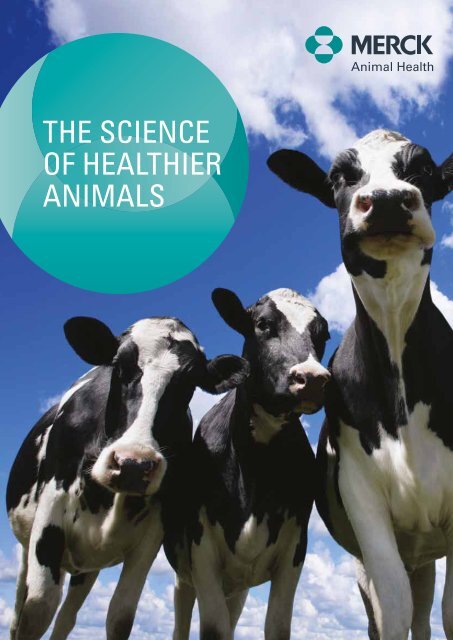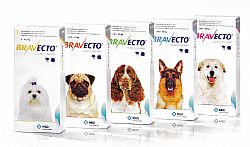colitis in cats merck
Two species infect cats. Gastrointestinal infections such as salmonella or giardia.

Products Merck Animal Health Canada
C jejuni jejuni C coli C jejuni C upsaliensis and C helveticus are the Campylobacter spp that have been associated with intestinal disease in companion animals.

. Eating things he shouldnt as a result of scavenging in bins for example. There are several potential causes of colitis. Colitis is an inflammation of the colon large intestine which is the last part of the digestive tract in cats.
Colitis is a common disease in dogs and cats most commonly characterized by chronic diarrhea of unknown origin. Parasites such as hookworms roundworms whipworms or giardia Food allergy Bacterial viral or fungal infections Eating nonfood items such as grass plastic or fabric. Treating your cats colitis.
Many cats may have an occasional acute bout of colitis but if the condition becomes serious and chronic treatment may be required in the form of dietary modification antibiotics anti-inflammatory drugs or deworming. The pancreas produces enzymes to assist in food digestion and hormones such as insulin which regulates blood sugar or glucose metabolism. Disorders of the Stomach and Intestines in Cats Inflammation of the Large Intestine Colitis.
C jejuni jejuni causes diarrhea in dogs and cats which are considered a significant source of. Appears constipated tenesmus Difficult or painful evacuation dyschezia Frequent bowel movements where little is passed. The most common coccidia of cats and dogs are Isospora.
Due to the medications bitter taste salivation is the most common side effect. However when abnormally high levels of this bacteria is found in the intestine it can lead to Clostridial enterotoxicosis. The condition can become severe enough to ulcerate the tissue.
The term IBD is used to describe a group of conditions characterized by inflammation of the gastrointestinal tract and persistent or recurrent GI signs. Feline Colitis is a chronic bowel disease resulting from inflammation of the intestine. Overview of Colitis in Cats.
Common causes of colitis in cats. Viral or bacterial infection. Inflammatory bowel disease IBD is a multifactorial disease of dogs and cats.
Food allergies or dairy intolerance. Cat colitis is a painful medical condition that involves the swelling of the lining of the colon. Cats with chronic colitis tend to be middle-aged and are often purebred.
Injury to the colon. I felis and I rivolta. Some Isospora spp of cats and dogs can facultatively infect other mammals and produce in various organs an encysted form that is infective for the cat or dog.
Faeces-related symptoms commonly observed in cats with acute chronic and episodic colitis. After ruling out common infectious disease parasitic bacterial fungal diet change can control signs of most of the patients. The large intestine also called colon or large bowel helps maintain.
Other physical symptoms of. Pancreatitis is a condition that creates serious inflammation in your cats pancreasThis disease is painful causes the pancreas to flare up when inflamed and it can be life-threateningThere is still much that veterinarians dont know about pancreatitis in cats but information about the disease continues to evolve so that you and your vet can help your pet. Cat colitis is a painful medical condition that involves the swelling of the lining of the colon.
C difficile associated diarrhea and disease develops spontaneously in a variety of other species including horses pigs calves dogs cats hamsters guinea pigs rats and rabbits. Constipation is the infrequent or difficult passage of feces. There are several side effects associated with metronidazole for cats.
The more common causes of colitis include. Feline inflammatory bowel disease IBD is a condition in which a cats gastrointestinal GI tract becomes chronically irritated and inflamed. Both can be identified easily by oocyst size and shape.
Overview of Colitis in Cats. There are a number of causes of. Histiocytic ulcerative colitis is a bowel disease which causes the lining of an animals colon to thicken with varying degrees of ulceration and tissue loss to the superficial lining.
Colitis is an inflammation of the colon or large intestine. Clostridium perfringens bacterium is a normal bacteria found in the environment commonly inhabiting decaying vegetation and marine sediment as well as raw or improperly cooked meats and poultry. If not successful antibiotics or.
In cats there is no age or gender association with colitis. Merck Co Inc Kenilworth NJ USA is a global healthcare leader working to help the world be well. Merck Co Inc Kenilworth NJ USA is a global healthcare leader working to help the world be well.
Frequent diarrhoea stools may start off solid but finish off watery and loose. Irritable bowel syndrome IBS Intestinal worms. The calling card of colitis in cats is a loose or mostly wet stool containing mucus and sometimes blood.
Clostridium difficile is a large gram-positive anaerobic spore-forming motile rod and is the major cause of antimicrobial-associated colitis in humans. The principal adverse effects in dogs are keratoconjunctivitis sicca and vasculitis. Find specific details on this topic and related topics from the merck vet manual.
A secondary reaction to antibiotics and other medications Pancreatitis Dietary intolerance or. Causes of cat colitis include allergies infection injuries ingestion of toxic substances and cancer. Inflammatory bowel diseases are the most common cause of chronic vomiting and diarrhea in dogs and cats.
Colitis in cats merck. Stress Intestinal parasites such as roundworms Coccidia or Giardia Viral infections particularly feline leukemia virus FeLV feline immunodeficiency virus FIV or feline infectious. The fecal material is.
Clostridial Enterotoxicosis in Cats. Overview of Colitis in Cats. Understanding Feline Colitis.
When pancreatitis occurs in cats it is often accompanied by inflammation of the liver and intestine. Inflammatory cells infiltrate the walls of the GI tract thickening them and disrupting the ability of the GI tract to properly digest and absorb food. Metronidazole is typically tolerated very well by cats as long as the dose is appropriate.
It may be acute with sudden onset and short duration or chronic that is present for at least two to three weeks or exhibiting a pattern of episodic recurrence. The most common side effects can include vomiting. This in turn causes the superficial mucosal layer of the bowel to thicken.
Cats of any age can be affected by IBD but the disease occurs most often in middle-aged and older. Water is absorbed in the colon and feces are stored until the cat passes it out of the body. Other adverse effects may occur but they are rare.
The thickening is due to the infiltration of various cells in the layers under the lining. Colitis and Proctitis in Cats.

Tri Heart Plus Vs Heartgard Plus

The Science Of Healthier Animals Merck Animal Health
Prescription Drugs Manufactured By Merck Sharp Dohme Corp Recall Guide
Prescription Drugs Manufactured By Merck Sharp Dohme Corp Recall Guide

Activyl For Cats Kittens Free 2 Day Shipping Walmartpetrx Com

Bravecto Plus Topical Solution For Cats
Prescription Drugs Manufactured By Merck Sharp Dohme Corp Recall Guide

The Urinary System Of Cats Kidney And Urinary Tract Disorders Of Cats The Merck Manual For Pet Health Cat Uti Cat Anatomy Cats

Pin By Karen Thompson On Health Wellness Merck Manual Digestive Disorders Disorders

Calcium Oxalate Dihydrate Crystals In Urine

Bravecto Plus Topical Solution For Cats

Arata Matsuyama Dvm Dacvim Oncology Author Merck Veterinary Manual

The Urinary System Of Cats Kidney And Urinary Tract Disorders Of Cats The Merck Manual For Pet Health Cat Anatomy Vet Medicine Vet Tech Student

Friday Fun Facts 9 7 2012 Subcutaneous Tissue Biology Life Cycles

New Flea Tick Medication By Merck Just Approved Bravecto Dr Justine Lee



